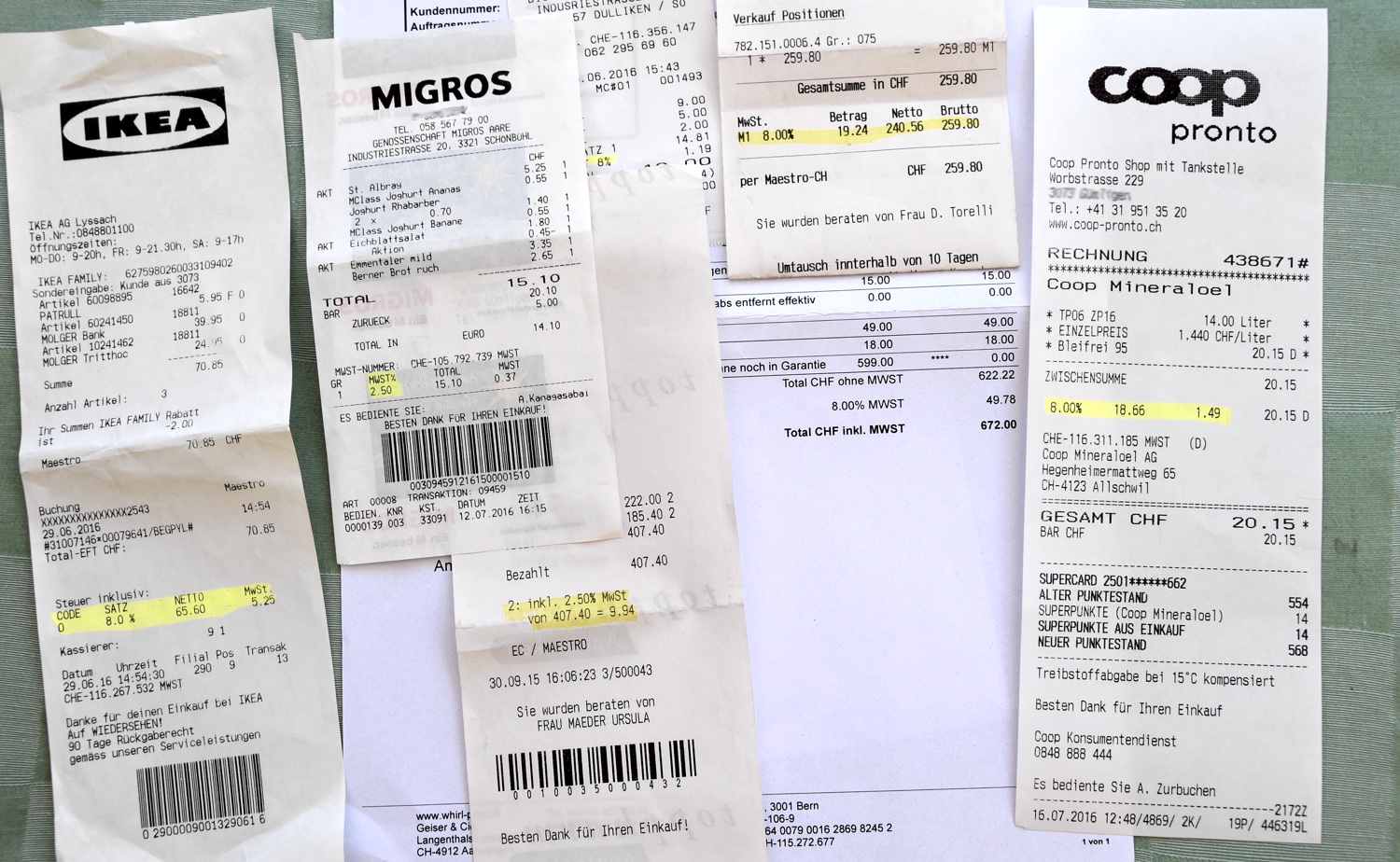VAT 8%
adminci2016-07-25T09:51:51+02:00In Switzerland the VAT (Value Added Tax – or MWSt – Mehrwertsteuer) is set at 8% for most articles. Basic foods and medication are only taxed 2.5%.
This is an indirect tax on all services and products purchased within Switzerland. The state gets about a third of its income through the VAT.
Companies offering services or products within Switzerland with less than a CHF 100’000 revenue may be exempt from having to charge their customers the VAT.
The VAT of 8% in Switzerland is quite low in comparison with Germany 19%, France 20%, Italy 22%, Austria 20%, UK 20% and Sweden 25% etc.
Visitors from China who buy expensive watches in Switzerland are probably best advised to pay the VAT in Switzerland because at home the China Sales tax is 17%.
Switzerland is quite an expensive country. Salaries are very high. That is a main reason why services are expensive in comparison with Europe or the rest of the world.
For Swiss residents it is tempting to shop across the borders. Services and goods are a better deal than at home. When crossing the border the Swiss residents can additionally apply for a tax return.




